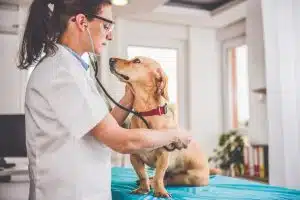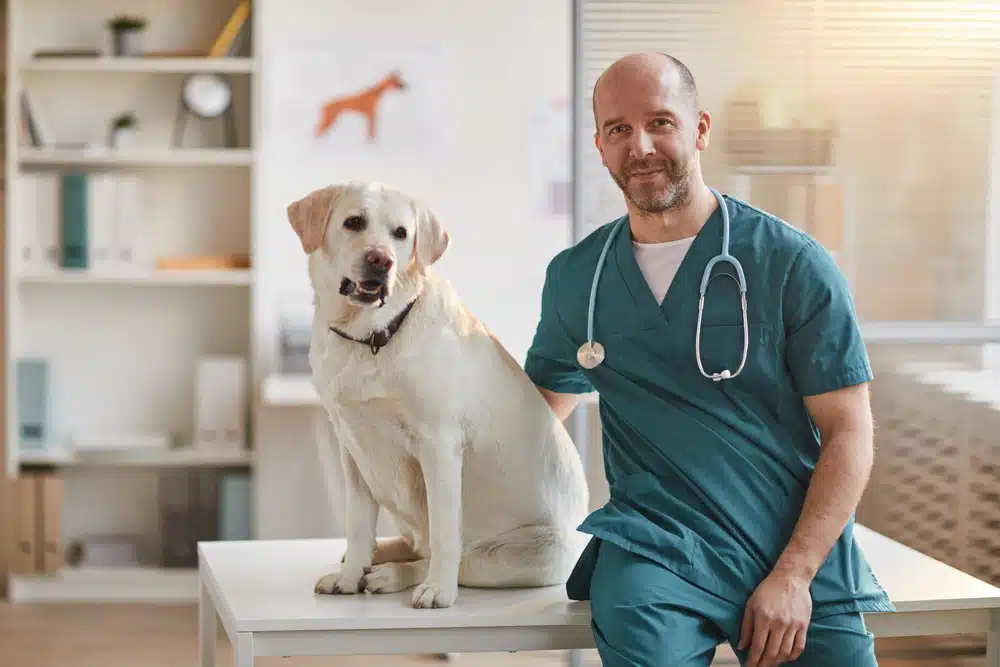
On the flip side, technological advancements are allowing pet owners to benefit from electronic communication with veterinarians online and telemedicine visits from their homes. These newfound efficiencies are transforming how veterinarians are connecting with their clientele and delivering treatment to their furry patients
Many types of veterinary practices have not been able to keep up with an overall increase in demand.
Veterinary services market trends
Veterinary services are in high demand as the pet population continues to rise. Today’s veterinary services market has been shaped by a number of trends, ranging from the increasing availability of pet insurance and higher pet care costs to the desire for easy access to animal healthcare professionals. Additionally, new technologies such as telemedicine and remote health monitoring have enabled veterinarians to reach clients far beyond their immediate geographical area, helping expand their customer base even further.
In this way, veterinary services are showcasing unprecedented growth and becoming increasingly accessible for those looking for quality healthcare solutions for their furry friends.
Large animal practices
Since around 20 years ago, key events and developments have reduced the size of farmed livestock in the UK and resulted in farmers cutting costs to improve profitability, including veterinary treatment. This has led to a decline in large animal services in many veterinary practices. The lack of young veterinarians has also led to more large animal practices withdrawing farm animal treatment. This change has led to a shift in the treatment of farm animals, with preventative ‘population’ medicine taking precedence over reactive treatment for individual animals.
The agricultural sector in the 2010s spent more on veterinary services than it did in the 2000s in part due to better fortunes for livestock farmers. In spite of this, the horse population decreased significantly in the late 2000s and early 2010s due to the economic downturn. Some equine veterinary practices were inevitably impacted by this. It will likely take a few years before the horse population reaches its pre-downturn levels, despite the economy recovering since the second half of 2013.
Small animal practices
Among the reasons for the better performance of the small animal sector are:
- The number of small animals kept as pets has increased
- Treatment options have expanded significantly
- In order to offset the costs of medical care for animals, pet insurance was introduced
- There has been an increase in the amount of money that owners are willing to spend on their pets. The increasing number of pet owners taking out insurance policies has also increased the costs – and complexity – of the procedures they must comply with
- Veterinarians have been required to blood test, vaccinate, and implant a microchip under the Pet Travel Scheme, all of which can be charged. Pet Travel Scheme was brought into compliance with EU animal movement policy in January 2012.
It is likely that the decline in the large animal sector has led to more veterinarians focusing on the small animal market, causing competition to rise and fees to decline. According to reports, in the late 2000s and early 2010s, consumers’ disposable incomes were squeezed, resulting in some animal owners skipping routine treatments such as vaccination boosters and annual check-ups. During the mid 2010s, veterinary services for pets only increased by about 2% a year, despite recent improvements in the economy.
England, Scotland, and Wales introduced mandatory microchipping for dogs in 2016 after the government conducted a consultation in 2012. In Northern Ireland, it is already a requirement to obtain a dog licence.
Changes to animal medicines legislation
Since 2005, a number of changes have been made to the distribution of veterinary medicines as a result of the Veterinary Medicines Regulation and the Supply of Relevant Veterinary Medicinal Products Order. The following changes have been made:
- Dispensing prescriptions written by other veterinarians by veterinarians and pharmacists
- There will be a new, tier-based distribution system for Prescription Only Medicines (POMs). POMs are classified as POM-V, which can only be prescribed by veterinarians and pharmacists, and POM-VPS, which can be prescribed by veterinarians, pharmacists, and retailers such as saddlers and agricultural merchants, provided they are suitably qualified persons. Veterinarians, pharmacists, and other qualified individuals can prescribe medicines for non-food producing animals under the NFA-VPS classification.
- Records are to be kept for a longer period of time
- The legislation prohibited vets from charging for prescriptions for three years after implementation. Vets were permitted to charge for prescriptions after 1 November 2008, when the ban on charging Individual practices determine the amount charged
In addition, all veterinary premises that supply animal medicines have been required to register since 2009. Veterinary Medicines Directorate entrusts the RCVS with registration.
Approximately half of the UK’s veterinarians received their education abroad, mostly in the EU. It is crucial for Brexit to succeed and for high standards of animal welfare to be maintained that overseas vets and veterinary nurses working in the UK at present are allowed to continue to do so.
The following decisions will need to be made:
- Your practice is supported by sufficient demand in your area
- Veterinary practices and animal products suppliers in your area will be able to compete with you
- There will be enough income generated from your fee scales and your planned markup on medicines
Keep up to date with developments
You can keep up with industry developments by joining a trade association. Veterinary professionals are represented by the British Veterinary Association (BVA). Several specialist associations exist as well, including:
- The British Equine Veterinary Association (BEVA)
- The British Small Animal Veterinary Association (BSAVA)
- The Society of Practising Veterinary Surgeons (SPVS)
Registered veterinarians are required to follow the RCVS Guide to Professional Conduct and are required to be members of the Royal College of Veterinary Surgeons (RCVS). RCVS registration is also required for all premises where medicines are dispensed. There is a great deal of useful information available on the RCVS website and in its newsletter, RCVS News.
VetBuzz and Vet Times are two online sources of veterinary news and information, which also include information about veterinary journals. On the Gov.uk website, you can also find information about the Department for Environment, Food and Rural Affairs (DEFRA).
This website contains information about animal medicines and their applications provided by the National Office of Animal Health (NOAH).
Read more: Legal issues that veterinary practices are facing
Conclusion
The veterinary sector has seen a number of notable changes in recent years, with technological advancements driving significant improvements and advancements in animal care. Electronic medical records have made it easier to store comprehensive records of visits and treatments, while diagnostic tools like ultrasounds, x-rays and CT scans have improved the accuracy of diagnoses.
There has also been a rise in pet insurance policies which provide animals with financial protection against the costs of medical treatment. Additionally, telemedicine has become an increasingly popular way for vets to deliver care remotely via consultations over webchat or video call – a move that’s convenient for pets and pet owners alike. Ultimately, these trends point to a more accessible and reliable sector that is consistently providing better quality care for our furry friends.
Lee Jones is a seasoned Business Finance Specialist with over two decades of invaluable experience in the financial sector. With a keen eye for market trends and a passion for helping businesses thrive, Lee has become a trusted advisor to countless organizations seeking to navigate the complexities of finance.


